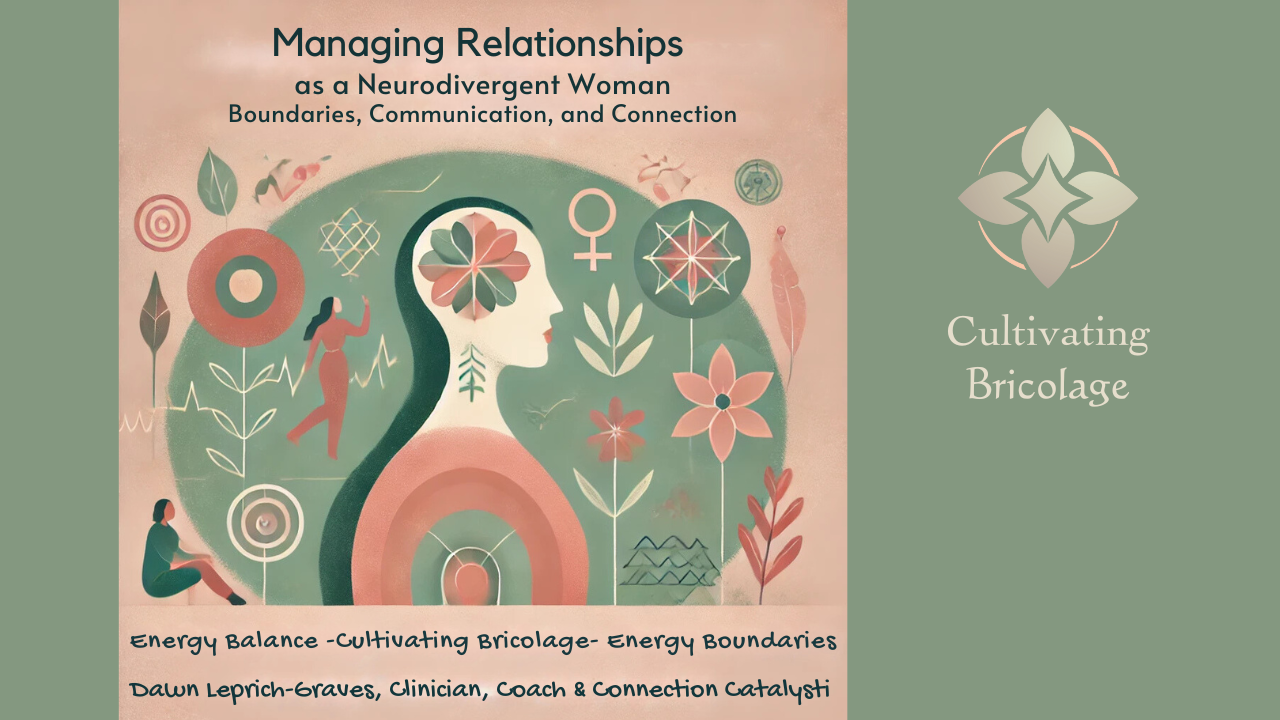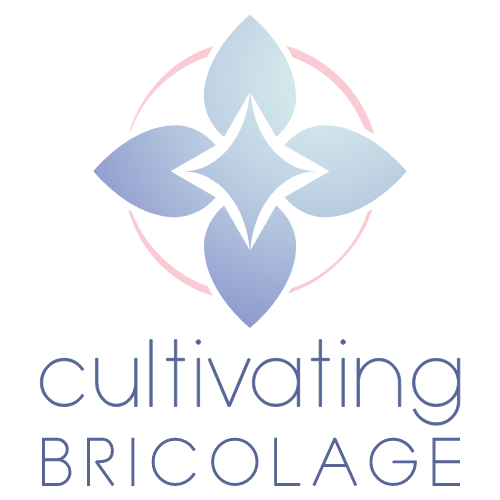Managing Relationships as a Neurodivergent Woman: Boundaries, Communication, and Connection
Feb 23, 2025
Relationships Are Complicated (and Worth It)
Relationships—whether romantic, platonic, or professional—can be both fulfilling and challenging. For neurodivergent women, navigating the nuances of connection often comes with unique struggles: overthinking social cues, managing sensory triggers, or balancing boundaries with the desire to connect deeply.
But here’s the thing: You don’t have to mask or overextend yourself to have meaningful relationships. Let’s explore how to manage relationships in a way that honors your needs while building genuine connection.
Why Relationships Can Feel Overwhelming for Neurodivergent Women
Relationships often require skills like emotional regulation, communication, and boundary-setting—all of which can be harder to navigate for neurodivergent individuals.
Common challenges include:
- Overthinking: “Did I say the wrong thing?” or “What did they really mean?”
- Sensory Overload: Social settings with loud noises or crowds can feel draining.
- Masking: Hiding your authentic self to fit in or avoid judgment.
Good news: You can foster meaningful relationships without sacrificing your well-being.
3 Pillars for Managing Relationships: Boundaries, Communication, and Connection
1. Set and Honor Your Boundaries
Boundaries protect your energy and help you show up fully in relationships.
How to Set Boundaries:
- Start Small: Identify one area where you feel overextended and set a limit.
- Use Clear Language: Say, “I need [specific boundary] to feel balanced.”
- Anticipate Pushback: Not everyone will understand at first, but that’s okay.
2. Practice Authentic Communication
Honest communication builds trust and reduces the mental load of overthinking.
Tips for Neurodivergent-Friendly Communication:
- Use “I” statements to express feelings: “I feel overwhelmed when…”
- Write down your thoughts before important conversations.
- Clarify expectations to avoid miscommunication.
3. Cultivate Intentional Connection
Focus on quality over quantity. Choose relationships and interactions that align with your values and energize you.
Ideas for Intentional Connection:
- Plan one-on-one meetups in sensory-friendly spaces.
- Schedule check-ins with loved ones to nurture connection without overwhelm.
Navigating Romantic Relationships
Romantic relationships can be especially nuanced. If you’re in a partnership, consider these strategies:
- Discuss Sensory Needs: Share what environments feel safe or triggering for you.
- Use Tools for Emotional Regulation: Practice grounding techniques before addressing conflicts.
- Celebrate Small Wins Together: Acknowledge progress, like trying new ways to communicate.
When Boundaries Lead to Deeper Connection
Setting boundaries doesn’t push people away—it creates a foundation for healthier, more authentic relationships. As Dawn Leprich-Graves of Cultivating Bricolage often tells clients, “Boundaries aren’t walls; they’re bridges to deeper understanding.”
Self-Compassion in Relationships
Remember, relationships are a two-way street. You’re not responsible for managing everyone else’s feelings. Show yourself grace as you navigate connections.
Practice this affirmation: “I am worthy of relationships that honor my needs and my authenticity.”
Ready to Build Stronger Relationships? Let’s Work Together.
If managing relationships feels overwhelming, my coaching program for neurodivergent women can help. Together, we’ll explore strategies for setting boundaries, improving communication, and cultivating meaningful connections that work for you.
Let’s create relationships that honor who you are.
– Dawn Leprich-Graves, LCPC, LPC, PMH-C, ASDCS Clinician, Coach & Connection Catalyst

